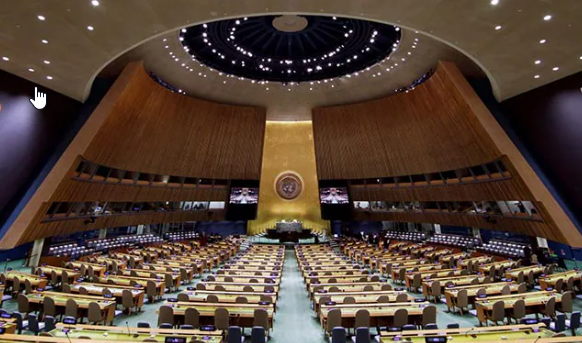United Nations General Assembly Observers
The United Nations General Assembly (UNGA) is one of the six principal organs of the United Nations (UN) and serves as the main deliberative, policymaking, and representative body of the organisation. In addition to the 193 member states, the UNGA also grants observer status to certain non-member states, intergovernmental organisations, and other entities. Observer status allows these parties to participate in the work of the UNGA, although with limited rights compared to full member states.
Types of Observers
Non-member States There are currently two non-member states with observer status at the UNGA:
- The Holy See (Vatican City): The Holy See has held observer status since 1964 and maintains a permanent observer mission at the UN headquarters in New York.
- The State of Palestine: In 2012, the UNGA granted Palestine “non-member observer state” status, upgrading its previous “entity” observer status, which it had held since 1974.
Intergovernmental Organisations
Several intergovernmental organisations have been granted observer status at the UNGA, including:
- The European Union (EU): The EU has held observer status since 1974 and is the only regional organisation with a permanent observer mission at the UN.
- The African Union (AU): The AU has had observer status since 2002, following the dissolution of its predecessor, the Organisation of African Unity (OAU).
- The International Committee of the Red Cross (ICRC): The ICRC has enjoyed observer status since 1990, in recognition of its unique role in international humanitarian law.
Other Entities
In addition to non-member states and intergovernmental organisations, the UNGA has granted observer status to a few other entities, such as:
- The Sovereign Military Order of Malta: This Catholic religious order has held observer status since 1994.
- The International Olympic Committee (IOC): The IOC has had observer status since 2009, reflecting the UN’s recognition of the role of sport in promoting peace and development.
Rights and Privileges of Observers
Observers at the UNGA have the right to attend and participate in the general debate and other meetings of the Assembly. They can also co-sponsor draft resolutions and decisions on matters within their competence, except for those related to peace and security issues. However, observers do not have the right to vote on resolutions or decisions, nor can they propose candidates for various UN bodies or elect members of the Security Council.
Contributions of Observers
Despite their limited formal rights, observers at the UNGA play an essential role in shaping the global agenda and contributing to the work of the United Nations. For example:
- The Holy See has been a strong advocate for peace, human rights, and sustainable development, often providing a moral voice in UN debates.
- The State of Palestine’s upgraded status has allowed it to participate more fully in the work of the UN and has drawn attention to the ongoing Israeli-Palestinian conflict.
- The European Union has used its observer status to promote multilateralism, human rights, and the rule of law, and to support the UN’s efforts in areas such as climate change and sustainable development.
Future Prospects
As the global landscape continues to evolve, there may be further changes to the observer status at the UNGA. Some non-member states, such as Kosovo and Taiwan, have sought observer status but have not yet been granted it due to geopolitical sensitivities. There have also been calls for greater participation of civil society organisations and other non-state actors in the work of the UNGA, although this remains a contentious issue.
Observer status at the United Nations General Assembly provides an important avenue for non-member states, intergovernmental organisations, and other entities to engage with the international community and contribute to the work of the United Nations. While observers have limited formal rights compared to full member states, they nonetheless play a significant role in shaping the global agenda and promoting international cooperation on a wide range of issues.


